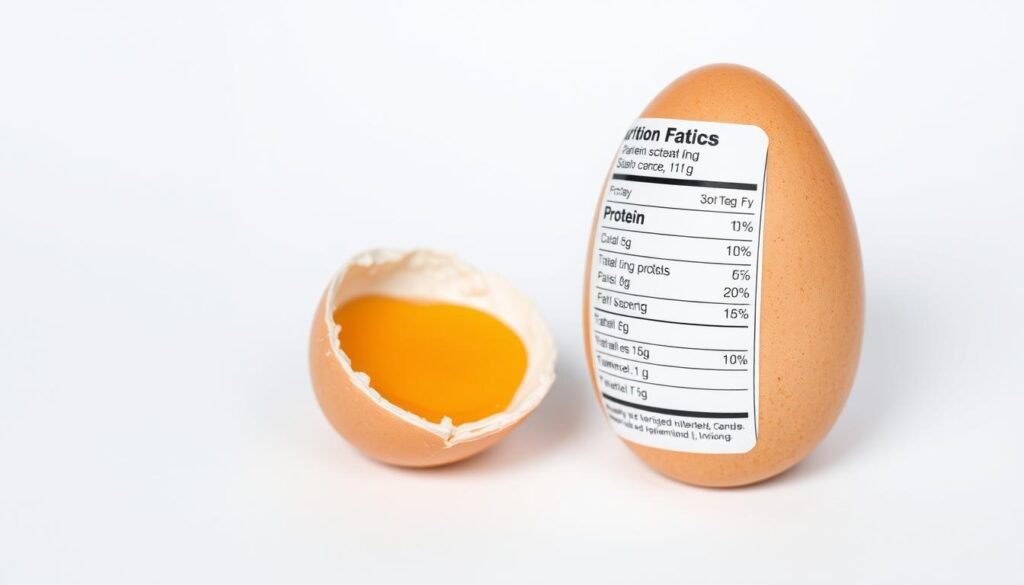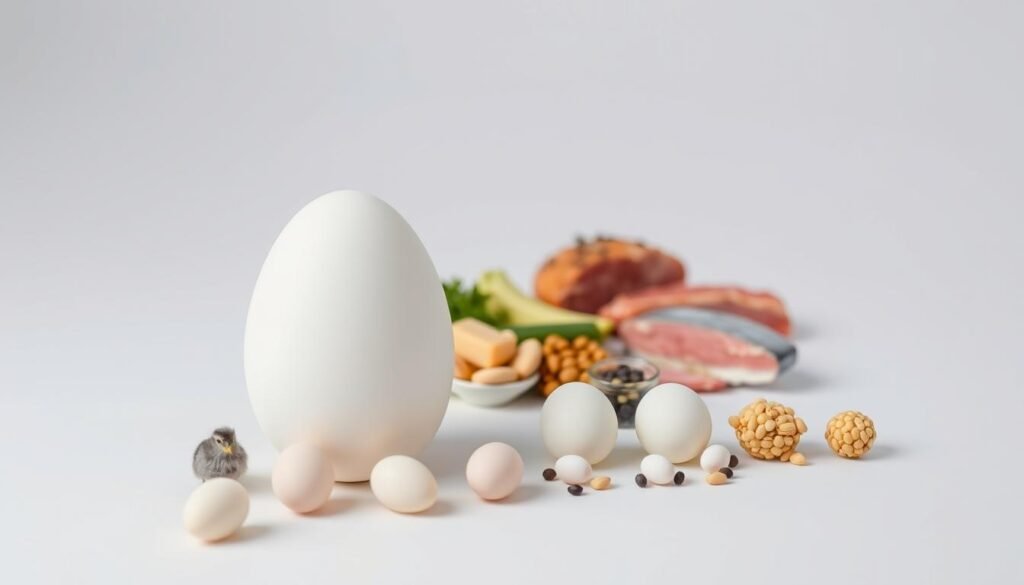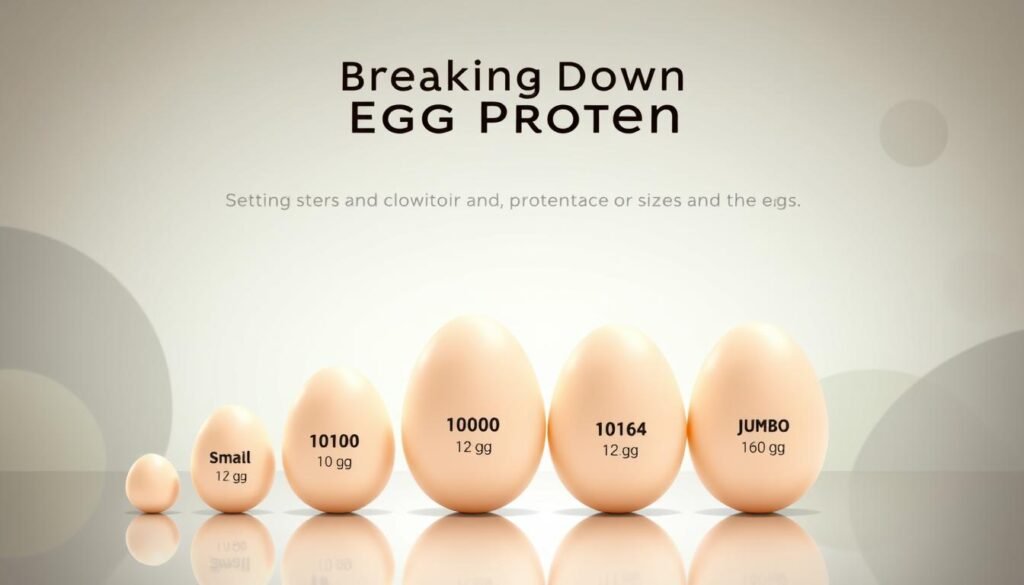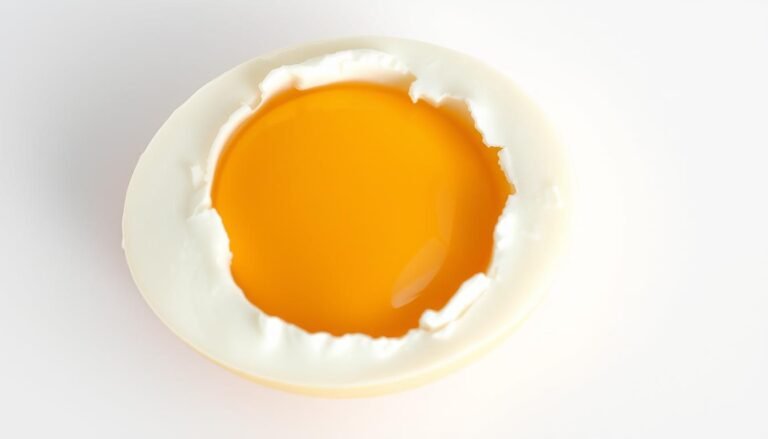What if the answer to your daily protein needs could fit in the palm of your hand? Eggs, a breakfast staple, pack a surprising nutritional punch—but do you really know how much protein you’re getting when you crack open six of them?
Eggs are a powerhouse of high-quality protein, offering all nine essential amino acids your body craves. Whether scrambled, boiled, or fried, their versatility makes them a go-to for athletes, busy families, and health-conscious eaters alike. But protein content isn’t one-size-fits-all. Size matters: larger eggs deliver slightly more, while smaller ones fall short.
Beyond protein, eggs provide nutrients like choline and vitamin D. The yolk and white work together, with the white contributing most of the protein and the yolk adding healthy fats and micronutrients. This guide dives into the numbers, benefits, and creative ways to make eggs work harder for your goals.
Key Takeaways
- A single large egg contains 6-7 grams of protein, depending on size.
- Eggs provide all nine essential amino acids for muscle repair and growth.
- Both the yolk and white contribute to the total protein count.
- Nutritional value varies slightly between conventional, organic, and pasture-raised eggs.
- Including eggs in meals supports energy levels and satiety throughout the day.
Introduction to Egg Nutrition and Protein
Eggs aren’t just a breakfast hero—they’re a nutritional powerhouse that fits into any meal. Whether you’re whipping up an omelet or adding one to a salad, these protein-packed wonders deliver essential nutrients without breaking the calorie bank.

Key Nutritional Facts About Eggs
A single large egg (50 grams) offers about 6.3 grams of complete protein, while a smaller one (38 grams) provides roughly 4.8 grams. The yolk holds nearly half the nutrients, including brain-boosting choline and vitamin D. Egg whites, though lower in calories, supply most of the muscle-friendly protein.
Here’s what makes them stand out:
- Low-calorie fuel: A large egg contains just 70-80 calories
- Size matters: Jumbo eggs pack 10% more protein than small ones
- Balanced nutrition: Yolks add healthy fats, whites keep meals lean
Overview of Egg Protein Benefits
Starting your day with eggs can curb cravings and stabilize energy levels. Their amino acid profile supports everything from strong hair to post-workout recovery. Plus, the combo of protein and fats helps manage weight by keeping you fuller longer.
One study found people who ate eggs for breakfast consumed fewer calories throughout the day. Pair them with veggies or whole grains for meals that stick with you—no mid-morning snack attacks needed.
How Many Grams of Protein in 6 Eggs: A Detailed Look
When meal prepping for the week, eggs often become a kitchen MVP. Their nutritional value isn’t just about quantity—it’s about understanding what each component brings to your plate.
Size Matters in Protein Math
Egg dimensions directly impact your protein intake. A jumbo egg packs 8 grams, while smaller ones deliver about 4.8 grams. Six large eggs typically provide 37-38 grams—enough to meet 75% of most adults’ daily needs.
| Egg Size | Protein Per Egg | Total in 6 Eggs |
|---|---|---|
| Jumbo | 8g | 48g |
| Large | 6.3g | 37.8g |
| Medium | 5.5g | 33g |

The Great Divide: Whites vs Yolks
Clear egg whites supply 57% of the protein in large eggs. Yolks contribute the rest plus healthy fats. Here’s the split:
- Whites: 3.6g protein, nearly fat-free
- Yolks: 2.7g protein + 4.5g dietary fat
This complete protein source contains all nine essential amino acids. These building blocks help repair muscle tissue after workouts and support skin health. Pair six eggs with whole grains for meals that fuel your body all day.
Breaking Down Egg Protein: Sizes, Calories, and Nutrients
Cracking the code on egg nutrition means looking beyond the shell. Precision matters when tracking macros—whether you’re meal prepping or managing dietary needs.

Protein Content Across Different Egg Sizes
Not all eggs are created equal. A small egg (38g) offers 4.8g protein, while a jumbo (63g) delivers nearly double. Here’s how sizes stack up per 100 grams:
| Size | Weight | Protein Per Egg | Per 100g |
|---|---|---|---|
| Small | 38g | 4.8g | 12.6g |
| Large | 50g | 6.3g | 12.6g |
| Jumbo | 63g | 8g | 12.7g |
Surprised? Larger eggs have more total protein but similar density. This makes portion control easier for recipes requiring specific measurements.
Calorie Count and Nutrient Comparison
A large egg clocks in at 72 calories, with most coming from the yolk. For those watching intake, calorie specifics vary by preparation. Compare these per 100g values:
- Whole egg: 143 calories, 12.6g protein
- Egg whites: 52 calories, 11g protein
Whites shine for lean protein seekers—they’re 90% water and nearly pure amino acids. But yolks bring vitamin D and choline, linked to brain health. Balance matters: studies show moderate eating eggs doesn’t raise heart disease risk for most people.
Health Benefits, Risks, and Nutritional Impact of Eggs
Eggs walk a nutritional tightrope—celebrated for their high-quality protein punch but sometimes questioned for cholesterol content. Let’s crack open the facts to help you enjoy their benefits wisely.
Eggs as a High-Quality Protein Source
Whole eggs deliver complete nutrition whether boiled, scrambled, or baked. The protein egg content stays consistent across cooking methods—a rare feat among foods. Here’s what makes them stand out:
| Component | Protein | Key Nutrients |
|---|---|---|
| Whole Egg | 6.3g | Choline, Vitamin D |
| Egg White | 3.6g | Riboflavin, Selenium |
| Egg Yolk | 2.7g | Iron, Lutein |
Egg yolks provide nearly half the protein plus brain-boosting nutrients. For those avoiding cholesterol, egg white options still offer much protein with minimal fat.
Managing Cholesterol and Heart Health
Research shows mixed results on eggs and heart health. A 2021 review found most people handle dietary cholesterol well, but those with diabetes should monitor intake. Moderation is key—the American Heart Association suggests up to one whole egg daily for healthy adults.
Raw eggs pose risks like salmonella. Cooking eliminates bacteria while preserving nutrients. Skip the Rocky-style shakes—scrambled or poached is safer.
Eggs in Weight Management and Daily Diets
Starting your day with eggs breakfast combos keeps hunger at bay. Their protein-fat mix triggers fullness hormones, reducing snack cravings. Pair them with avocado or spinach for balanced meals.
Three smart ways to enjoy eggs:
- Hard-boiled as portable snacks
- Omelets loaded with colorful veggies
- Baked in whole-grain muffins
Remember—variety matters. Rotate egg white scrambles with occasional yolk-inclusive dishes to maximize benefits without overdoing cholesterol.
Delicious Egg Recipes and Cooking Methods for Nutritious Meals
Transform your kitchen into a protein playground with these egg-cellent ideas. Cooking eggs properly preserves their quality protein while minimizing disease risk linked to eating raw preparations. Let’s crack into meals that balance flavor and heart-smart choices.
Easy Breakfast Ideas Featuring Eggs
Start mornings strong with veggie-packed omelets or protein-packed breakfasts like spinach-and-feta egg muffins. These dishes:
- Use whole eggs or a 2:1 white-to-yolk ratio
- Pair with fiber-rich veggies to manage cholesterol levels
- Cook thoroughly to eliminate salmonella risks
“Baking eggs in avocado halves creates a creamy, satisfying meal that supports healthy blood cholesterol.”
Creative Egg Meals for Lunch and Dinner
Eggs aren’t just for breakfast! Try these nutrient-dense twists:
| Dish | Key Ingredients | Cholesterol Impact |
|---|---|---|
| Stuffed Peppers | Quinoa, egg, tomatoes | Balanced fats |
| Shakshuka | Poached eggs, spices | Low saturated fat |
| Zucchini Frittata | Egg whites, herbs | Heart-smart |
Roasted veggie frittatas or egg-stuffed sweet potatoes make dinner exciting. Since eggs contain versatile proteins, they adapt to global flavors—think Mexican huevos rancheros or Japanese tamagoyaki.
Remember: Moderating yolk intake to 1-2 per day helps maintain cholesterol levels. Always cook eggs until whites set and yolks thicken—your taste buds and arteries will thank you!
Conclusion
Eggs prove that good things come in small packages. Six large ones deliver around 38 grams of complete protein, fueling muscles and keeping hunger at bay. Whether you prefer jumbo or medium sizes, each offers a powerhouse of nutrients wrapped in a low-calorie shell.
The yolk-white combo brings balance: whites supply lean protein, while yolks add vitamins and healthy fats. Recent studies show moderate egg consumption rarely impacts heart disease risk for most people. Keeping blood cholesterol levels in check? Try pairing them with veggies or whole grains.
Start your day strong by eating eggs breakfast-style—scrambled, poached, or baked. Their versatility makes boosting nutrition deliciously simple. Ready to shake up your meals? Whip up those frittatas or stuffed peppers from our recipe ideas!
Remember: smart choices create lasting health benefits. Crack into your goals—one egg at a time.




